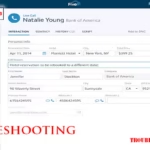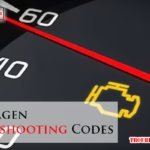Dealing with Ford Transit van issues can be frustrating. Identifying the problems and knowing how to fix them is crucial.
Ford Transit vans are popular for their reliability and versatility. Yet, like any vehicle, they can experience issues. Common problems range from engine troubles to electrical faults. Understanding these issues can save time and money. This guide will walk you through basic troubleshooting steps.
We aim to help you keep your van running smoothly. Whether you’re a seasoned mechanic or a beginner, this information will be useful. Let’s dive into the common issues and how to solve them.
Common Issues
The Ford Transit van is a reliable vehicle. But, like all vehicles, it has its share of common problems. These issues can vary from engine troubles to transmission glitches. Understanding these can help you maintain your van better. Let’s dive into some of the most frequent problems.
Engine Problems
Engine problems are a common complaint among Ford Transit owners. One major issue is difficulty starting the engine. This can be due to a weak battery or faulty alternator. Another problem is overheating. This often happens because of a failing radiator or a broken water pump. Strange noises from the engine are also a concern. These noises could indicate a serious internal issue. Regular maintenance can help prevent most engine problems.
Transmission Issues
Transmission issues are another problem area for the Ford Transit. Some drivers report trouble shifting gears. This can be due to low transmission fluid or a worn-out clutch. Slipping gears is another frequent issue. This usually signals a problem with the transmission system. Delayed engagement when shifting can also occur. This might mean the transmission needs attention. Regular checks and timely repairs are crucial.
Electrical System
The electrical system in your Ford Transit Van is crucial. It powers everything from lights to the engine. When it fails, your van can become inoperable. Knowing how to troubleshoot these issues can save you time and money. Below are common electrical problems you might encounter.
Battery Troubles
The battery is the heart of your van’s electrical system. If your van won’t start, the battery might be dead. Check the battery terminals for corrosion. Clean them with a wire brush.
- Low Charge: Use a multimeter to check the battery voltage. It should read around 12.6 volts. Anything lower means the battery is undercharged.
- Old Battery: Batteries degrade over time. If your battery is more than 3 years old, consider replacing it.
- Loose Connections: Ensure the battery cables are tight. Loose connections can prevent the battery from charging.
Wiring Faults
Wiring issues can cause various electrical problems. Damaged wires can lead to shorts or open circuits. Inspect the wiring harness for any signs of wear or damage.
- Visual Inspection: Look for frayed or broken wires. Pay attention to areas where wires bend or connect.
- Use a Multimeter: Test the continuity of the wires. A broken wire will show no continuity.
- Check Fuses: A blown fuse can indicate a short circuit. Replace any blown fuses and investigate the cause.
Fixing wiring faults can be tricky. Consult a professional if you’re unsure.
By understanding these common electrical issues, you can keep your Ford Transit Van running smoothly.
Brake System
The brake system in your Ford Transit Van is crucial for safety. Problems can arise, affecting performance and safety. Understanding common issues can help maintain your van. Addressing these problems early can prevent costly repairs.
Brake Pad Wear
Worn brake pads are a common issue. They should be checked regularly. Thin pads reduce braking efficiency. They also increase stopping distance. Listen for squeaking or grinding noises. These sounds often indicate worn pads. Replacing them can restore braking performance. Regular maintenance ensures the pads last longer.
Hydraulic Leaks
Hydraulic leaks can lead to brake failure. Check for fluid under the van. Low brake fluid levels indicate a problem. Inspect brake lines for cracks or damage. Leaks reduce hydraulic pressure. This makes it harder to stop the van. Fixing leaks promptly is essential. It ensures the brake system functions properly.
Credit: help.indiecampers.com
Suspension And Steering
The Suspension and Steering systems of the Ford Transit Van are essential for a smooth ride. Understanding common issues can help maintain the van’s performance. Let’s dive into some key areas.
Shock Absorber Wear
Shock absorbers ensure a smooth ride by absorbing road impacts. Over time, they wear out and cause several problems. Common signs of worn-out shock absorbers include:
- Bouncing or swaying during turns
- Unusual tire wear patterns
- Leaking fluid around the shock absorber
Inspecting shock absorbers regularly helps in identifying wear early. Replacing worn-out shock absorbers can restore ride comfort and handling.
Steering Rack Problems
The steering rack is crucial for controlling the van’s direction. Problems with the steering rack can lead to unsafe driving conditions. Look out for these signs:
- Difficulty in steering, especially at low speeds
- Grinding or knocking sounds when turning the wheel
- Steering wheel feels loose or shakes
Regular maintenance of the steering system is vital. Checking for fluid leaks and ensuring proper lubrication can prevent steering rack issues.
Fuel System
The fuel system of a Ford Transit Van is crucial for its performance. It ensures that the engine gets the right amount of fuel at the right time. When this system fails, your van might not run properly. Issues in the fuel system can be due to several components. Below, we will discuss common problems like fuel pump failure and injector issues.
Fuel Pump Failure
The fuel pump is responsible for delivering fuel from the tank to the engine. If it fails, your van may not start. Signs of a failing fuel pump include:
- Engine sputtering at high speeds
- Loss of power during acceleration
- Decreased fuel efficiency
To check the fuel pump, listen for a humming sound when you turn the key. If there is no sound, the pump might be faulty.
Injector Issues
Fuel injectors spray fuel into the engine’s cylinders. Blocked or leaking injectors can cause:
- Rough idling
- Engine misfires
- Poor fuel economy
To troubleshoot, inspect the injectors for dirt or leaks. Sometimes, cleaning the injectors can solve the problem. In severe cases, replacement might be necessary.

Credit: www.youtube.com
Cooling System
The cooling system in your Ford Transit van is vital. It ensures your engine remains at a safe temperature. If the cooling system fails, your engine can overheat. This can lead to severe damage.
Maintaining the cooling system is essential for your van’s performance. There are common issues you might face. Two of these are radiator leaks and thermostat malfunctions.
Radiator Leaks
Radiator leaks are a common problem. A leaky radiator can cause coolant loss. This leads to engine overheating. Check for puddles under your van. Look for coolant stains on the radiator. These are signs of a leak.
You can use a radiator sealant for a temporary fix. But, it’s best to replace a damaged radiator. Regular inspection can help spot leaks early. Ensure your radiator is in good condition.
Thermostat Malfunctions
The thermostat regulates engine temperature. A malfunctioning thermostat can cause two issues. It might stick open or closed. Both are problematic.
If it sticks open, the engine may not reach the optimal temperature. This can cause poor fuel efficiency. If it sticks closed, the engine can overheat. Both situations require immediate attention.
Replacing a faulty thermostat is necessary. Regular checks can help prevent these issues. Keep your van running smoothly by ensuring a healthy thermostat.
Exhaust System
The exhaust system in your Ford Transit Van is crucial. It manages the escape of exhaust gases. A well-functioning exhaust system ensures your van runs smoothly. It also helps in reducing harmful emissions. Regular checks and maintenance are key to keeping the system in top shape.
Muffler Damage
A damaged muffler can cause several issues. Noise increase is the first sign. A muffler with holes or rust can make your van very loud. This issue is not only annoying but also illegal in many places. Another problem is reduced fuel efficiency. A damaged muffler can make the engine work harder. This leads to more fuel consumption.
To troubleshoot, inspect the muffler for visible damage. Look for rust, holes, or cracks. You can also listen for unusual sounds while the engine is running. If you find any issues, it’s best to replace the muffler. Regular checks can prevent major problems.
Catalytic Converter Issues
The catalytic converter is vital for reducing emissions. It converts harmful gases into less harmful ones. A failing catalytic converter can cause engine performance issues. You might notice reduced power and poor acceleration. Another sign is the check engine light turning on.
To diagnose, you can use an OBD-II scanner. This tool can read error codes from the engine control unit. Error codes related to the catalytic converter include P0420 and P0430. If these codes appear, your converter might be failing.
Also, inspect the converter for physical damage. Look for dents or rust. A clogged catalytic converter can also cause issues. In such cases, you might notice a sulfur smell from the exhaust. Replacing a failing catalytic converter is essential. It keeps your van running efficiently and legally.
| Issue | Symptoms | Actions |
|---|---|---|
| Muffler Damage | Noise increase, reduced fuel efficiency | Inspect for damage, replace if necessary |
| Catalytic Converter Issues | Reduced power, check engine light, sulfur smell | Use OBD-II scanner, inspect for damage, replace if necessary |

Credit: mechnician.com
Routine Maintenance
Routine maintenance keeps your Ford Transit Van running smoothly. Regular checks and upkeep can prevent major issues. This section covers essential maintenance tasks you can handle yourself.
Oil Change Tips
Changing the oil regularly is crucial for engine health. Always use the recommended oil type. Warm up the engine before draining the oil. This helps the oil flow out smoothly. Place a container under the drain plug to catch old oil. Once drained, replace the plug and fill with new oil. Check the oil level with the dipstick. Do not overfill.
Filter Replacements
Filters keep your van’s systems clean and efficient. Change the air filter every 15,000 miles. A dirty air filter reduces engine performance. Check the cabin air filter as well. Replace it if it looks dirty. Fuel filters should be changed every 30,000 miles. This prevents engine blockages. Always follow the manufacturer’s guidelines.
Frequently Asked Questions
Why Is My Ford Transit Van Not Starting?
A dead battery, faulty starter motor, or fuel system issues might be the cause.
How Do I Reset The Ford Transit Van’s Oil Light?
Turn the ignition on, press the brake and gas pedals simultaneously for 25 seconds.
What Causes Ford Transit Van’s Engine To Overheat?
Possible reasons include low coolant levels, a broken thermostat, or a malfunctioning radiator fan.
Why Are My Ford Transit Van’s Brakes Squeaking?
Brake pad wear, dirt, or lack of lubrication can cause squeaky brakes.
How To Fix Ford Transit Van’s Electrical Problems?
Check fuses, battery connections, and look for damaged wires to solve electrical issues.
Conclusion
Troubleshooting a Ford Transit van can be challenging yet manageable. Always start with basic checks. Look for common issues like battery problems or faulty sensors. Regular maintenance helps prevent major breakdowns. Keep your tools handy and consult your manual often.
For persistent issues, seek professional help. Addressing problems early can save time and money. Happy driving and stay safe on the road!






